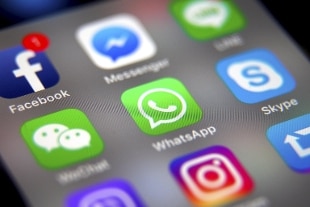- US, WhatsApp accuses Israeli hacking company
- Revelation Ft: "Spy 100 personalities with software on Whatsapp"
- The FBI unlocks the San Bernardino iPhone without Apple's help
- The UN with Apple against the FBI on the case of the iPhone of the San Bernardino killer
Share
December 11, 2019Facebook, in a letter, rejects the appeal of the US Attorney General William Barr and maintains his decision to make the messages exchanged on the platforms owned by the Menlo Park company, already present on WhatsApp, inaccessible to third parties. to Messenger and also to Instagram.Last October, Barr had asked to allow government access to messages between users for reasons of public safety. In the reply letter to the Attorney General, Will Cathcart and Stan Chudnovsky, head of the WhatsApp and Messenger chat services, explained that weakening the encryption in their products would create a vulnerability, rejecting the idea of introducing a "backdoor" (a port of 'secondary access) to access encrypted messages.
The 'backdoor', they pointed out, "would be a gift for criminals, hackers and repressive regimes", which would easily find ways to circumvent encryption. End-to-end encryption on WhatsApp already existed before the platform was purchased by Marrk Zuckerberg and Facebook plans to extend it to Messenger and messages exchanged between users on Instagram.
Facebook turns down Attorney General Barr's request for law-enforcement access to its WhatsApp and Messenger platforms https://t.co/rdyBYnBkgP
- The Wall Street Journal (@WSJ) December 10, 2019In an event organized by the Wall Street Journal, Barr returned to the topic, claiming that encrypted applications (not only WhatsApp but also Signal) helped "terrorist organizations, drug cartels, child molesters and child pornography gangs".
Facebook and Apple in these days have been called to testify on cryptography before a US Senate commission and Cupertino's privacy officer, Erik Neuenschwander, reiterated the importance of encryption on iPhones to protect sensitive data such as banking and health , and explained that there is no way to create a 'backdoor' to allow access to law enforcement without leaving the same door open to hackers.
Apple's precedent
Already in February 2016, the giant of Cupertino had replied 'no' to the request of a federal judge to access the data of the iPhone 5 of the bomber of the "San Bernardino massacre" which, in December 2015, killed fourteen people in a center disabled.
Even then the Apple CEO Tim Cook decided not to give in to the US government and not to force the encrypted code of the attacker's smartphone, because it would create a "dangerous precedent". On that occasion, Cook wrote, "opposing this order is not something we take lightly. We believe we must make our voice heard in the face of what we see as an excess by the US government."
EXCLUSIVE: Apple CEO @Tim_Cook sits down with @DavidMuir on FBI vs. Apple and the San Bernardino shooter's iPhone pic.twitter.com/LS9TArD7aO
- ABC News (@ABC) 24 February 2016An American federal judge had ordered Apple to assist the FBI in accessing the San Bernardino attacker's iPhone content. The FBI's legal action was necessary because the contents of the iPhone 5 were protected by a 4-digit code and the investigators could only try ten combinations before the contents of the phone were deleted. Later, the US federal agency said it could still unlock the iPhone without Apple's help.

